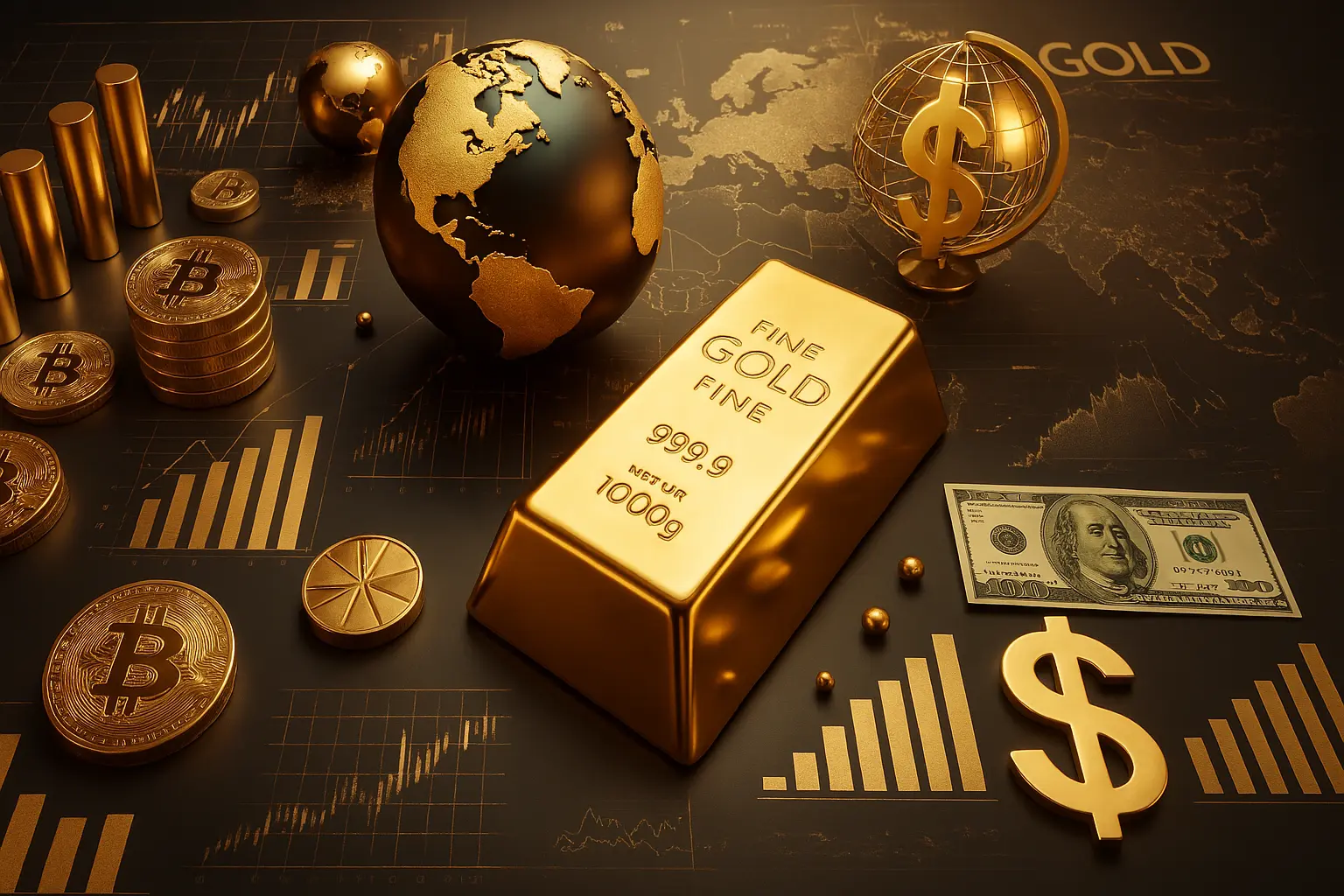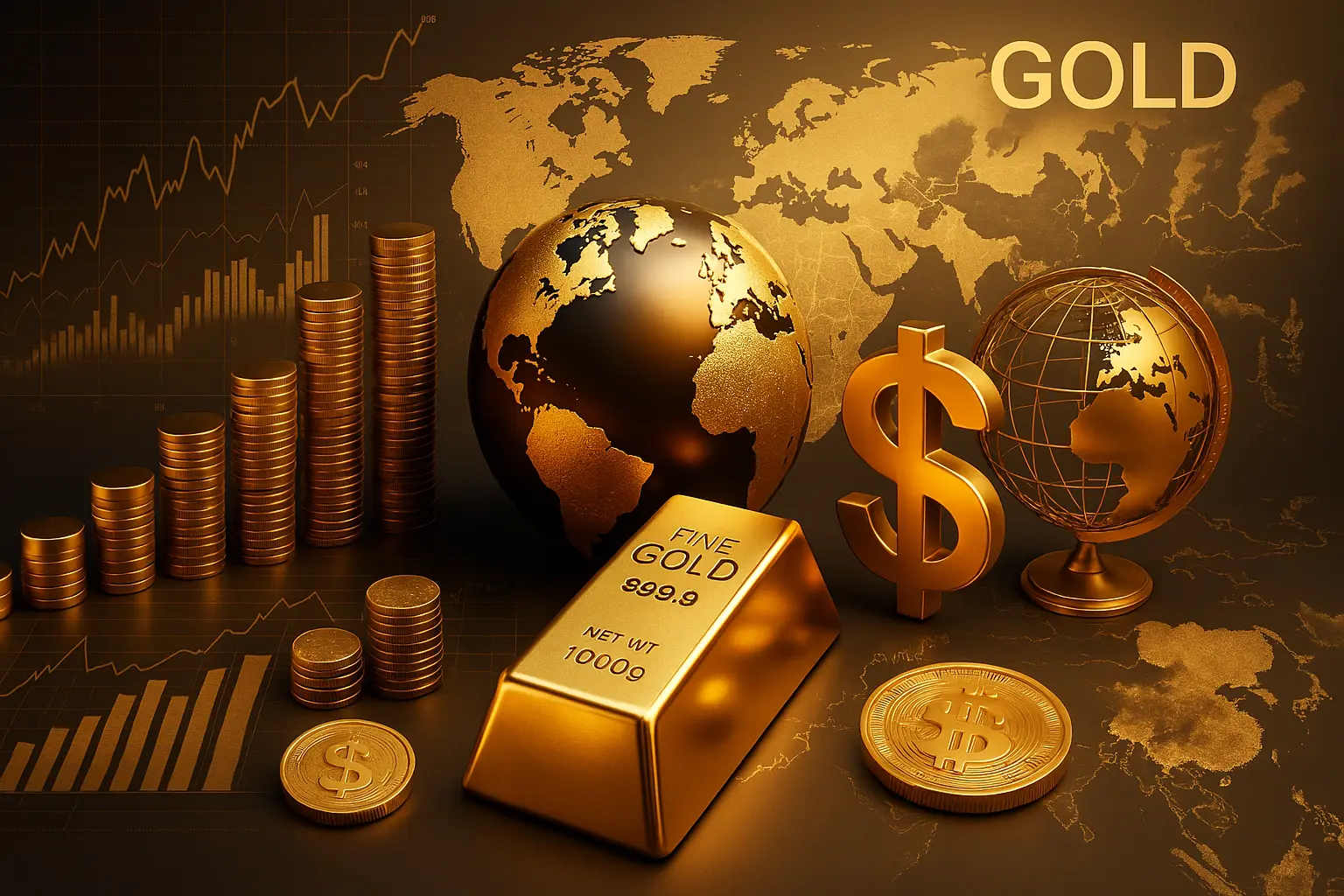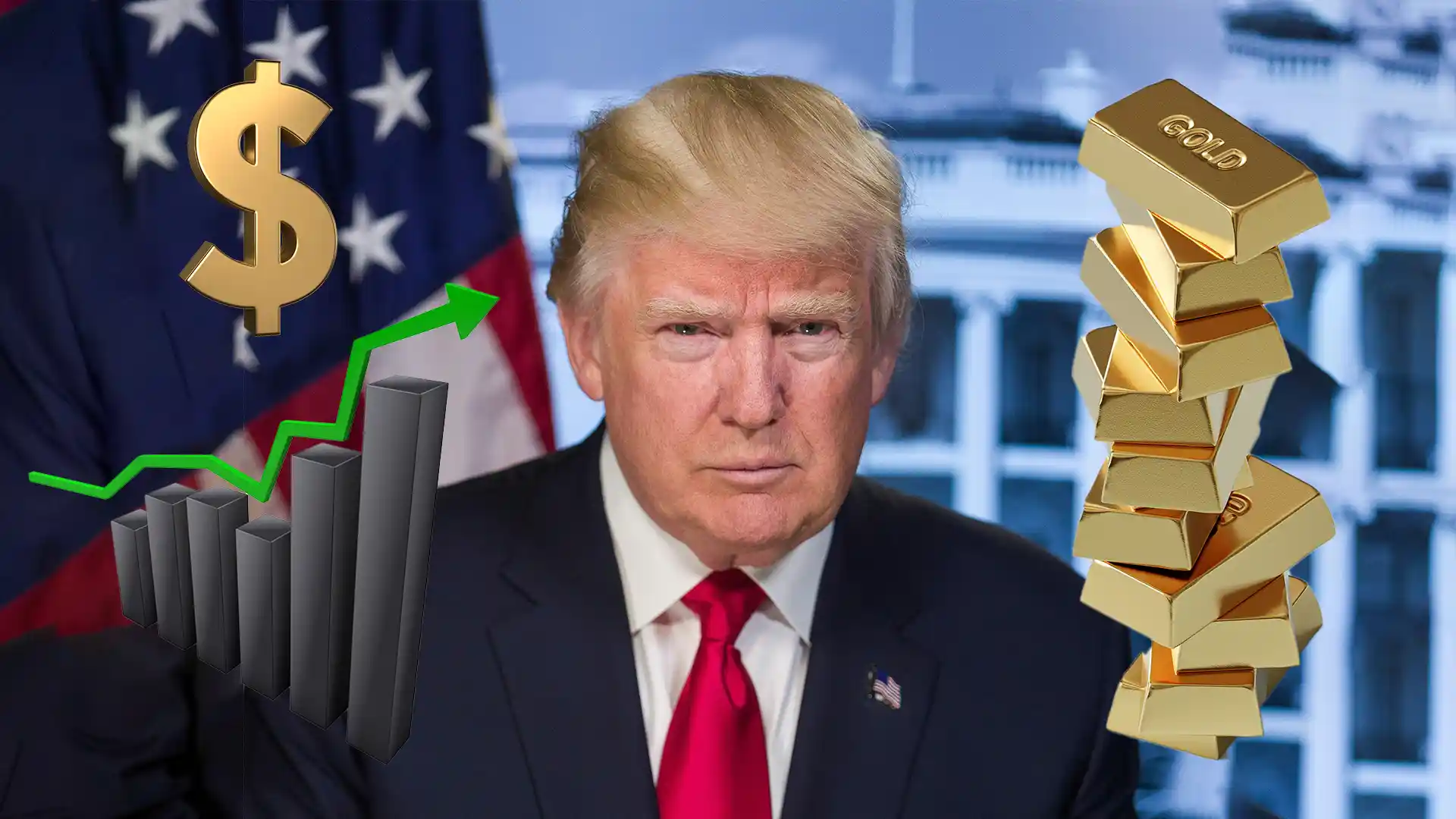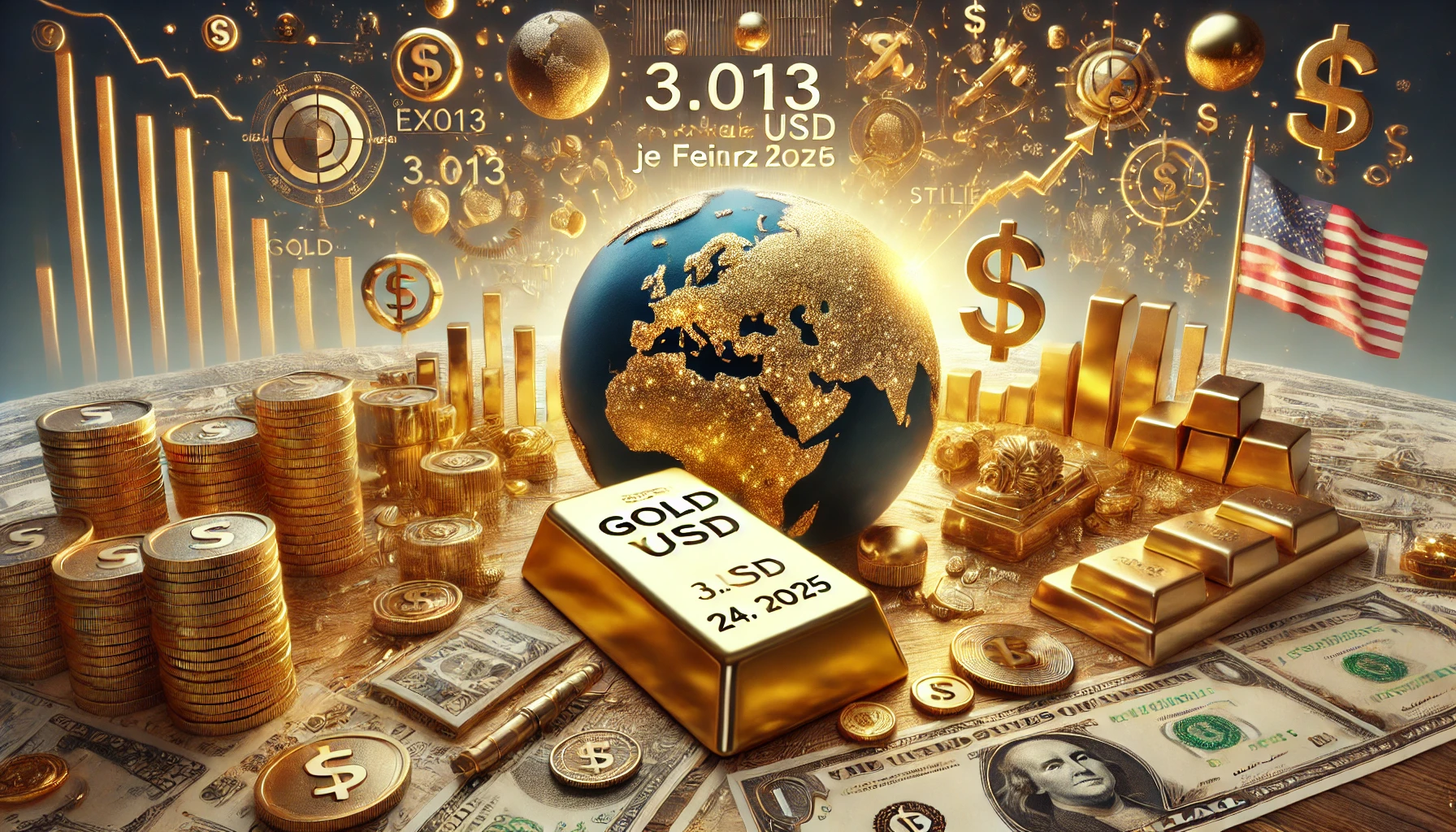Table of contents
Gold Price News: Global dynamics shape the Christmas week
Dr. Mathias Kunze
Senior Consultant in Commercial and Tax Law
5 min.
Published on: 28.12.2024 | 16:38 UTC
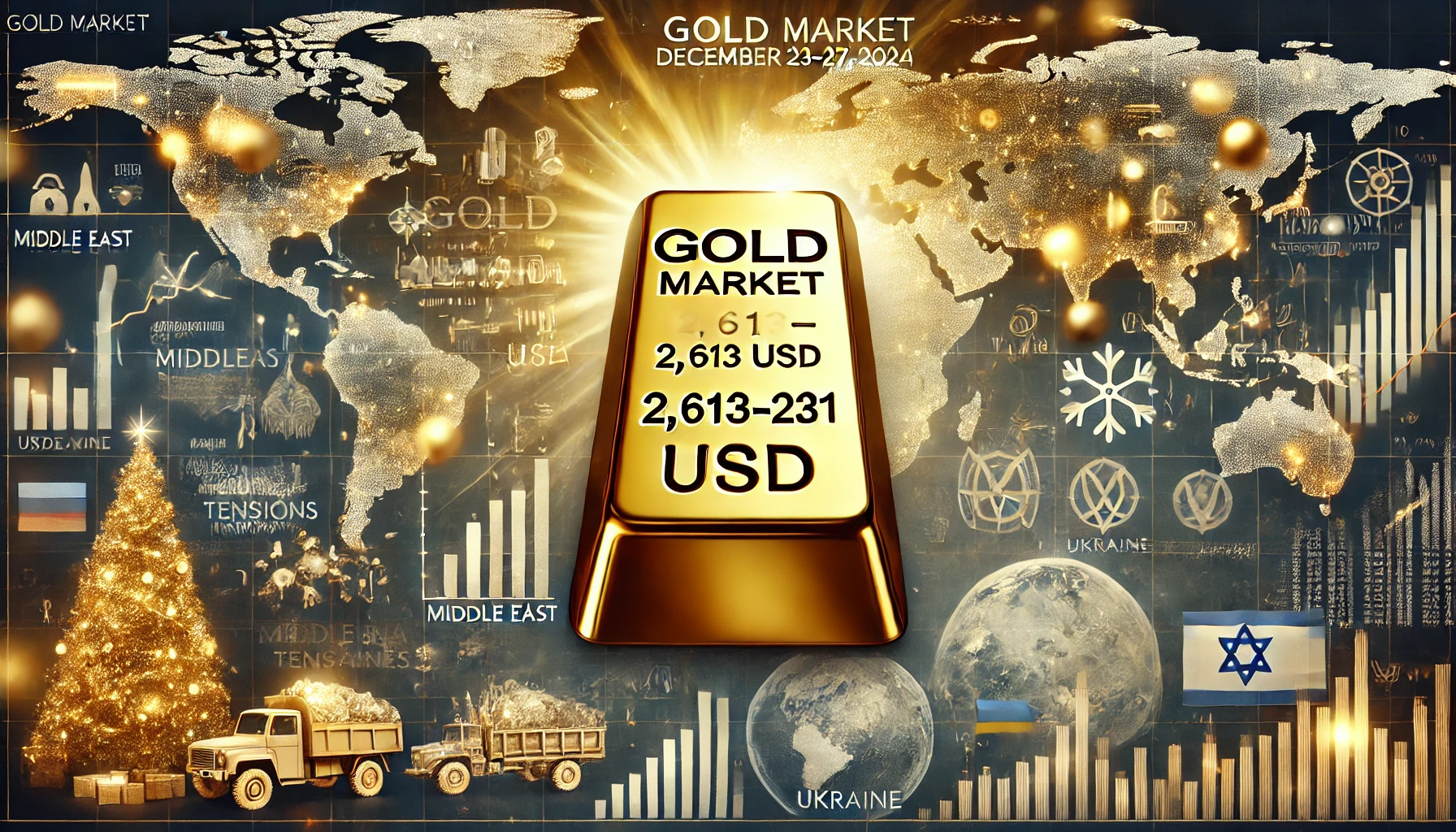
Gold price and important market developments from 23.12.2024 - 27.12.2024 in the live ticker
Source: ChatGTP (OpenAI)
Due to the Christmas holidays, the live ticker for the week of December 23-27, 2024 will exceptionally be published in a comprehensive weekly summary. The live ticker for this special week reflects the most important developments in the gold market, essential geopolitical events and economic dynamics that have moved the markets.
Gold price between USD 2,613 and 2,631 – Stability despite uncertainties
The gold price remained remarkably stable during the Christmas week, which was characterized by geopolitical tensions and the seasonal calm. At the beginning of the week, the gold price stood at USD 2,613, reaching a weekly high of USD 2,631 on December 26 and closing at USD 2,620 per troy ounce on December 27. The moderate upward movement reflects the demand for safe havens, which was particularly supported by geopolitical conflicts and uncertainties in Ukraine. Analysts see the stability of the gold price as a sign that investors continue to exercise caution while monitoring the global economic and political situation. Asian markets in particular, such as India and China, contributed to stable demand as gold has traditionally been highly valued in these regions. Despite the quiet week of trading, gold remains a central anchor in many portfolios as a hedge against potential risks.
Israel admits killing Hamas leader Haniya
In a rare official statement, Israel's Defense Minister Israel Katz has taken responsibility for his country's killing of Hamas political bureau chief Ismail Haniya. Haniya was killed in July during a visit to Tehran, an operation that Israel had not previously acknowledged. Katz also said that Israel would take similar action against the Houthi militia in Yemen, which recently fired rockets at Tel Aviv. These targeted killings are part of a broader Israeli strategy of eliminating enemies of the country and neutralizing regional threats. The conflict in the Middle East remains a driving factor behind geopolitical uncertainty, which also impacts global markets.
Netanyahu reports progress in hostage negotiations
Israeli Prime Minister Benjamin Netanyahu announced further progress in negotiations to release hostages still held in the Gaza Strip on Monday. Of the original 251 abductees, 96 are still being held by Hamas, while 34 have been officially declared dead. International mediators such as Qatar and Egypt are playing a central role in the talks, which are pushing for a solution. Netanyahu promised the families of the abducted that the government would do everything to bring the hostages home and praised the progress in the talks. The developments could contribute to a long-term de-escalation in the Middle East, which could have a positive impact on the markets. However, the markets' sensitivity to geopolitical risks remains high, as further attacks could escalate the situation again at any time.
Ukraine reports Russian drone swarms and victims among North Korean soldiers
During Christmas week, Ukraine reported massive drone attacks by Russia, which were intended to overload the country's air defenses. These swarms were sent from different directions, pushing the Ukrainian defense systems to their limits. At the same time, the Ukrainian government announced that more than 3,000 North Korean soldiers fighting alongside Russia had been killed or wounded. These soldiers were reportedly deployed in the Russian border region of Kursk, where fierce fighting continues. Russia is intensifying its attacks on Ukraine, using ever new tactics to weaken the population and infrastructure. The escalation once again highlights the global dimension of the conflict and increases the uncertainties that drive investors towards safe havens such as gold.
Trump renews claim to Greenland – Denmark responds with investments
US President-elect Donald Trump has once again laid claim to Greenland, prompting the Danish government to announce extensive investments in the security of the island. Greenland – rich in natural resources such as gold and oil – is a strategically important place that has been the focus of geopolitical interests for years. However, the Danish government emphasized that Greenland was not for sale and ensured the defense of the region with new patrol boats and long-range drones. These tensions could have long-term implications for the global commodities market, as Greenland is considered a potential supplier of important raw materials. Analysts see Trump's renewed statements as a strategic move to exploit geopolitical tensions, while Denmark is expanding its security presence. The developments highlight the growing geopolitical risks that could further support the demand for gold.
Thousands of North Korean soldiers killed in Ukraine war – numbers rise
Ukraine reported a dramatic increase in the number of casualties among North Korean soldiers fighting on Russia's side in the war during the Christmas week. President Volodymyr Zelenskyy spoke of more than 3,000 North Koreans killed or wounded, while South Korea estimated the number at around 1,100. These troops, stationed in Russia's Kursk border region, were apparently sent to support the Russian offensive.
Pyongyang is reportedly supplying not only soldiers but also kamikaze drones, rocket launchers and artillery to Russia, further exacerbating the international dimension of the conflict. The escalation highlights the increasing interdependence between Russia and North Korea and illustrates how complex the war in Ukraine has become. Analysts warn that the growing international involvement could further increase geopolitical tensions and thus also market uncertainties. In this environment, gold remains a preferred instrument for hedging against risks.
Arrest of Assad general in Syria – important step in dealing with past crimes
The new Syrian government has arrested General Mohammed Kando Hassan, who is considered to be one of the main perpetrators of numerous death sentences in Saydnaya prison. Hassan, who served as head of military justice under ousted President Bashar al-Assad, was arrested in a coordinated operation.
The arrest is seen as an important step in addressing the crimes of the Assad regime. International organizations and human rights groups are calling for a full investigation into his actions, which include, in particular, the systematic torture and execution of political prisoners. The new Syrian rulers see the arrest as a symbolic victory that will strengthen their legitimacy and win the support of the international community. The Hassan case illustrates how the post-war period in Syria is characterized by attempts to bring justice to the victims of the Assad regime.
Israel responds to Houthi attacks with air strikes in Yemen
Israel has responded to rocket attacks by the Houthi militia with massive air strikes in Yemen. Targets included military installations at Sanaa airport and ports in Hodeidah. Israeli Prime Minister Benjamin Netanyahu said that his country was determined to fight the influence of the Houthi militia and its links to Iran.
These attacks highlight the tensions in the Middle East, which affect not only regional security but also global markets. The conflict with the Houthis is part of a larger standoff between Israel and the so-called “Axis of Resistance,” which includes Hamas and Hezbollah. Analysts expect that this escalation could continue to support demand for safe-haven assets such as gold, especially if tensions in the Middle East continue.
Putin open to peace talks in Slovakia
Russian President Vladimir Putin has indicated his openness to Slovakia as a venue for peace talks with Ukraine. This surprising announcement came just days after a meeting with Slovak Prime Minister Robert Fico, who is considered to be an advocate of a neutral position on the Ukraine conflict.
Putin's statement was seen by analysts as a tactical move, with Russia continuing to seek military success while signaling its willingness to talk. Kiev reacted skeptically and warned that such talks could be used as a pretext for further Russian territorial claims. The markets are reacting sensitively to developments, as peace talks could influence the global risk outlook, particularly with regard to energy prices and the stability of the European economy.
Unrest in Syria after the fall of the Assad regime
Two weeks after the fall of Bashar al-Assad, Syria is experiencing its most serious unrest to date. Supporters of the overthrown regime fought with the new security forces in the coastal region of Tartus, killing 14 police officers. The new interior minister announced a crackdown on the “remnants” of the Assad regime.
At the same time, reports of the desecration of an Alawite shrine in Aleppo have caused further tensions. These incidents highlight the deep social divisions in Syria, which the new leadership is trying to overcome. Analysts see the unrest as a risk to the stability of the region, which could also affect global markets.
The keepers of the gold – Insights into the largest gold reserves
The largest gold reserves in the world are in the hands of the USA, which holds the top spot with over 8,000 tons. It is followed by Germany, Italy and France. In recent years, countries such as China and India have massively expanded their gold reserves in order to strengthen their economic independence.
Central banks around the world stepped up their gold purchases in 2024, as gold is seen as a safe haven investment in times of economic uncertainty. Analysts expect this momentum to continue in 2025 as geopolitical tensions and inflation risks persist.
Technical analysis: Gold price tests resistance level at USD 2,631
The gold price tested the USD 2,631 mark during the trading week, but was unable to sustainably overcome it. Support remains stable at USD 2,600, while the next significant barrier is at USD 2,650.
The Relative Strength Index (RSI) is at 58, indicating moderate buying momentum. The Moving Average Convergence Divergence (MACD) continues to show a buy signal. Trading volumes remained low due to the holidays, which dampened market movements.
Market outlook: Gold remains a stable anchor in uncertain times
The Christmas week was marked by geopolitical tensions and political momentum, which stabilized the gold price. In particular, developments in the Middle East and the intensified fighting in Ukraine shaped market events. The increased involvement of North Korean soldiers on the Russian side and the tactics of Russian drone swarms showed the increasing complexity of the conflict.
Donald Trump's renewed claim on Greenland and Denmark's military investments illustrate how geopolitical strategies could also influence resource markets in the long term. At the same time, the question of peace negotiations between Russia and Ukraine with Slovakia as a potential venue for negotiations remains.
These uncertainties, together with developments in China and India – currently the world's largest gold buyers – are likely to continue to support the gold market. Analysts expect the gold price to remain stable in the short term, while investors are watching the USD 2,650 mark as the next resistance zone. If this level is breached, the price could rise towards USD 2,680.
Further monetary policy decisions in the US and Europe, as well as the planned talks in the Middle East, could have a significant impact on the gold price in the new year. In the context of all the current global uncertainties, gold remains an indispensable component of many portfolios.
Dr. Mathias Kunze
Senior Consultant in Commercial and Tax Law
Blog

All-time high: Gold price breaks through USD 3,000 for the first time

Gold in industry: A detailed analysis of its interactions with halogens and in cyanide solutions



